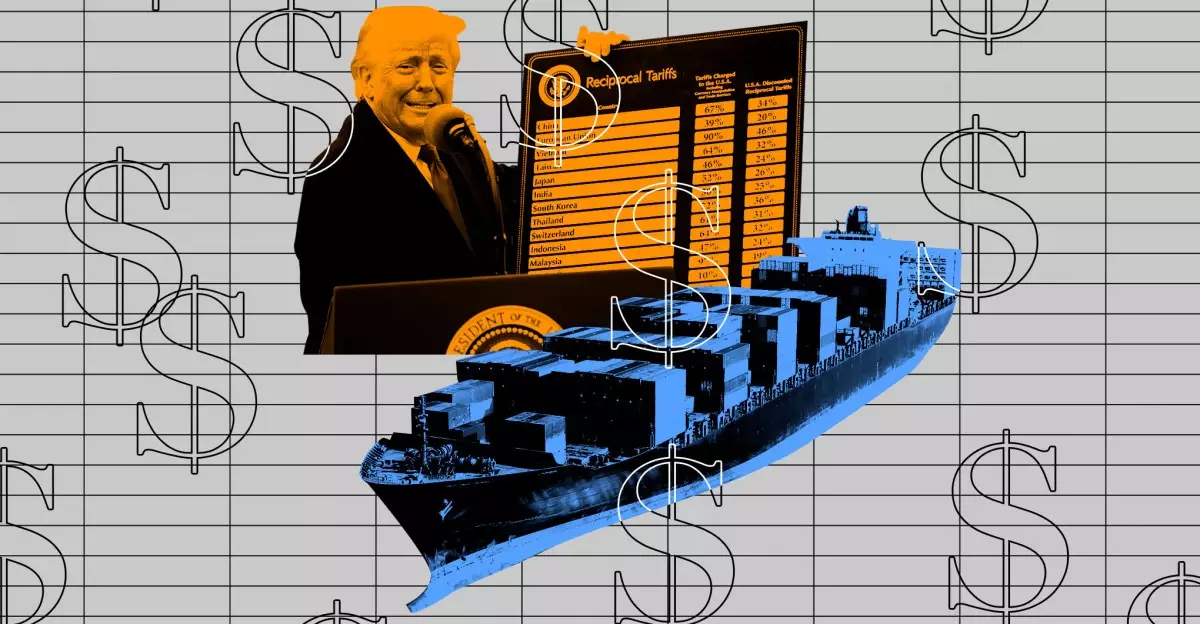In a notable shift within trade regulations, the US Customs and Border Protection (CBP) has recently announced an update that could reshape the landscape of technology imports significantly. By exempting common consumer electronics, including smartphones and laptops from tariffs imposed on Chinese goods, the updated guidance reflects a critical move towards alleviating financial burdens on consumers. This update is not just a bureaucratic adjustment; it is a beacon of hope for tech enthusiasts and industry players who have been grappling with the uncertainties and economic implications of ongoing trade wars.
What This Means for Consumers
The decision to exempt certain technology imports, especially those from China, is a gratifying reprieve for American consumers who have felt the pinch of rising prices over the past few years. Under the Trump administration, tariffs increased dramatically, leading to anticipated price hikes on popular gadgets and devices. Industries were bracing themselves for a surge in costs that would inevitably trickle down to the consumer, making once-affordable technology uneconomical for many households. By lifting punitive tariffs on essential products, the government appears to recognize the vital role that consumer technology plays in daily life and the economy overall.
While the CBP’s new guidance does not erase all tariffs entirely, it certainly alleviates a significant portion of the burden associated with imported tech products. Exemptions on smartphones, laptops, and other electronics illuminate the administration’s acknowledgment of the delicate balance between protecting domestic interests and fostering a competitive market that allows affordable technology access. In an era defined by digital reliance, these updates have come at a crucial time and promise to stabilize prices for consumers.
Industry Dynamics Amidst Tariff Turmoil
This revised policy could also influence how companies respond to fluctuating tariffs. For example, it has been observed that manufacturers like Sony and Apple are navigating this uncertain landscape cautiously. The team at Sony reportedly adjusted prices for their new television models, likely hedging against the anticipated costs of remaining tariffs. Meanwhile, Apple has been proactive, importing a significant volume of iPhones from India before tariffs set in. Such strategies show a growing awareness within the industry to either adapt quickly or risk losing market position amidst tariff-induced chaos.
Moreover, the relaxation of certain tariffs provides a glimmer of optimism for crucial tech manufacturers, including Taiwan Semiconductor Manufacturing Co., which play a pivotal role in the global supply chain for microchips and processors. The exemption from tariffs on machinery required for semiconductor fabrication can boost production capabilities and efficiency, reinforcing the U.S.’s position within the global tech market.
Implications for Future Legislation
As the landscape continues to shift, one critical question remains: what other legislative changes might follow? The CBP’s latest memo hints at broader industry considerations; namely, the implications of shipping duties for small parcels can reshape e-commerce dynamics. With a landscape evolving due to technology and the increasing need for efficient global supply chains, the government’s actions may foreshadow a more comprehensive reform in trade policies that promote innovation while addressing international concerns.
Furthermore, the administration’s recent pause on escalating tariff rates for other nations signifies a strategic recalibration. While the focus primarily remains on China, the administration may finally be recognizing the necessity of nurturing relationships that have been strained. Ultimately, tariffs are a double-edged sword that, if mishandled, risks crippling domestic industries and alienating consumers who heavily rely on imported technology.
The revised tariffs are more than mere changes in import duties; they signify a proactive stance to foster a more vibrant and accessible tech industry. By unshackling essential consumer electronics from excessive tariffs, the U.S. government acknowledges the fundamental role technology plays in everyday life. As the narrative unfolds, one can only hope that this shift is indicative of a broader recognition that prioritizes innovation and consumer access over protectionist measures. This pivot could very well serve as a catalyst for growth and opportunity within the technology sector, ultimately benefiting consumers, manufacturers, and the economy as a whole.


Leave a Reply